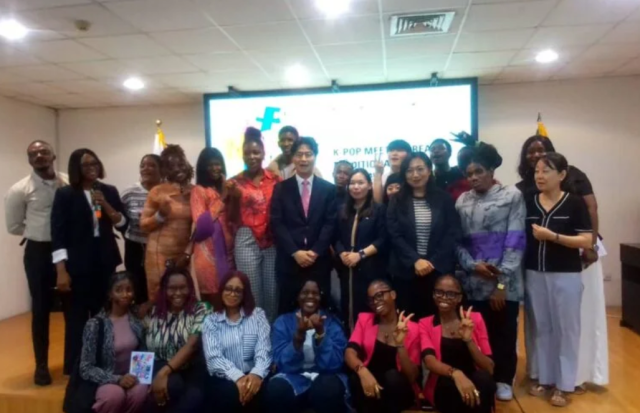The Korean Cultural Centre in Nigeria is keen on promoting collaboration between Nigeria’s Afrobeat music and traditional Korean sounds, leveraging the global popularity of K-pop to enhance cultural connections through music.
This initiative was announced by KCCN Director, Jeon Ju Ho, during the launch of the exhibition "K-pop Meets Korean Traditional Music" at the Centre in Abuja.
K-pop, which has become a worldwide music sensation originating from South Korea, has attracted millions of followers globally.
Ju Ho emphasized the rich emotional depth of traditional Korean music found within K-pop but pointed out that there has yet to be a significant collaboration between Korean traditional music and Nigeria’s well-known Afrobeat genre, highlighting this gap as a chance for creative fusion.
“When it comes to Korean traditional music, honestly, there hasn’t been any collaboration with Afrobeat. We are looking forward to more collaborative efforts and opportunities for traditional Nigerian music to be introduced to Korea,” he stated.
Ju Ho mentioned that while many Nigerians enjoy K-pop, they often do not recognize the traditional Korean sounds that influence it.
The exhibition aims to inform Nigerian audiences about the origins of K-pop and spark interest in cultural exchange between the two countries.
"KCCN is working to promote Korean traditional music in Nigeria, hoping for further collaboration so that traditional Nigerian music can also reach Korea.
The exhibition's purpose is to introduce Korean traditional music to Nigerian audiences by using K-pop, which they are already familiar with.
Many Nigerians are unaware of Korean traditional music, which is why we decided to showcase Korean traditional musical instruments that are also present in K-pop. Interest in traditional aspects is often lacking because they are used to K-pop,” he explained.
With the rising global recognition of Afrobeat and K-pop's status as an international phenomenon, Ju Ho believes that a partnership between the two genres, merging Afrobeat rhythms with traditional Korean melodies, could lead to impactful musical creations and reinforce cultural connections between Nigeria and South Korea.




















